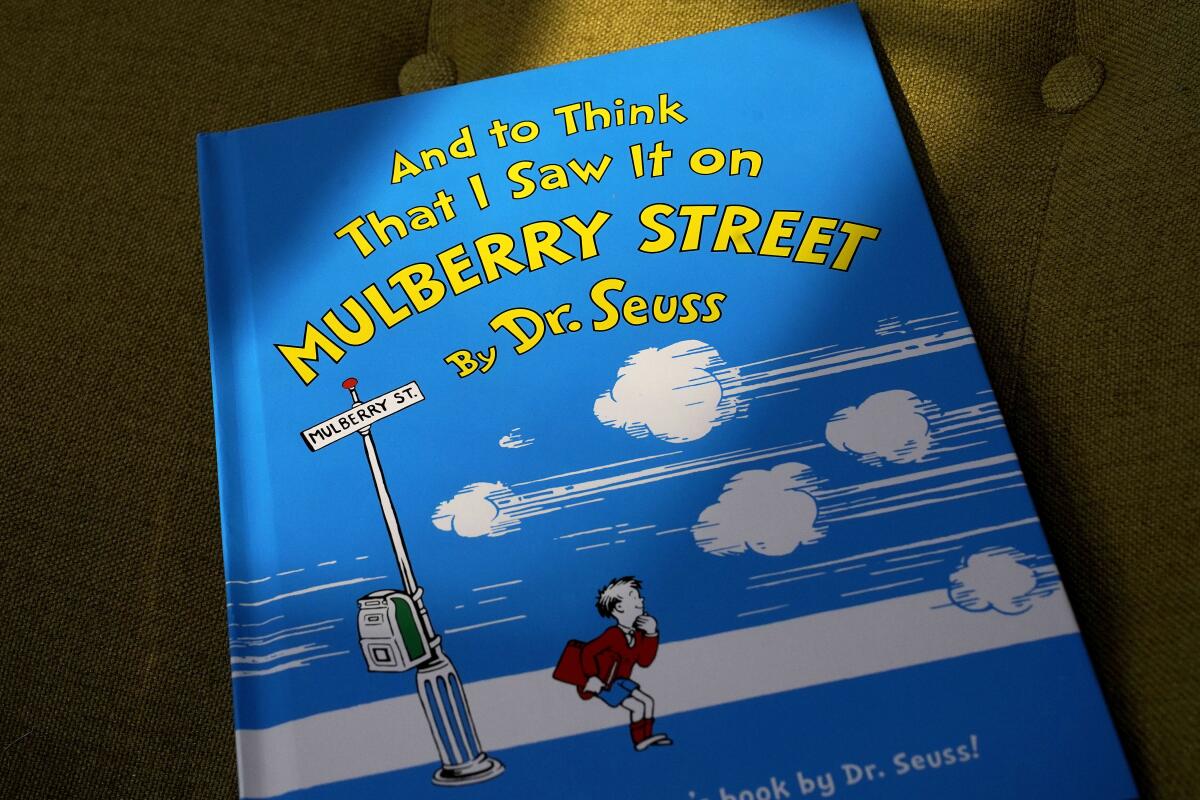Dr. Seuss isn’t going anywhere, and neither is panic over ‘cancel culture’

- Share via
As the parent of two third-graders and a kindergartener, I can say with some authority that Dr. Seuss isn’t going anywhere soon. This isn’t a statement of approval on my part, but rather an assessment of the facts on the ground. I never sought out Seuss’ books, but a decent number of them sit in my kids’ bookcase, because giving young children Dr. Seuss books is just what friends and family do.
In other words, Dr. Seuss isn’t being “canceled,” contrary to what some pundits and politicians would have us believe. What’s actually happening is more complex — the late author’s own estate is halting publication of six books with imagery and wording long found to be racist — but complexity can’t compete against “cancel culture” panic.
Judging by some of the letters we’ve received on Dr. Seuss, the right’s cancel-culture messaging appears to be sticking.
Larry Walker of Canoga Park notes a turnabout by the left:
Liberals have until now decried censorship, saying even the most offensive books and films are protected under the mantle of free speech. How times have changed.
Now, some books by Dr. Seuss, honored as an outstanding writer by the National Education Assn. and praised by Barack Obama during his presidency, are being removed from circulation. Where will this end?
John Zavesky of Riverside makes a slippery slope argument:
Censorship of the arts is not education. It is repression by a fascist agenda.
Let’s ban “Sherlock Holmes.” He used cocaine and was a misogynist. He was condescending to figures of police authority. Female characters were generally portrayed as helpless and ignorant. Holmes pursued criminals without any license or authority and has been known to dispatch more than one when he deemed necessary.
It’s way past time to ban those books.
Acceptance of censorship of the arts allows for society to readily go down that slippery slope where arbitrary judges will decide for all what we are allowed to read, and more importantly what we are not allowed to read.
Laura Owen of Pacific Palisades wants to lower the temperature:
The current controversy surrounding the earlier works by Dr. Seuss that contain offensive racial imagery offers a strong argument for why we should not throw the Sneetches out with the bathwater. Dealing with the past offenses of once-beloved icons is a hot-button topic these days and is proving to be problematic to all political persuasions.
Maybe we could all bring some humility, reason and perspective to the table — qualities that are, ironically, espoused in many Dr. Seuss books.
Flora Perry of Los Angeles expresses concern for the cat:
Dr. Seuss does indeed need to go for promoting animal abuse by suggesting that you put a cat in a hat. How shameful.
More to Read
A cure for the common opinion
Get thought-provoking perspectives with our weekly newsletter.
You may occasionally receive promotional content from the Los Angeles Times.










